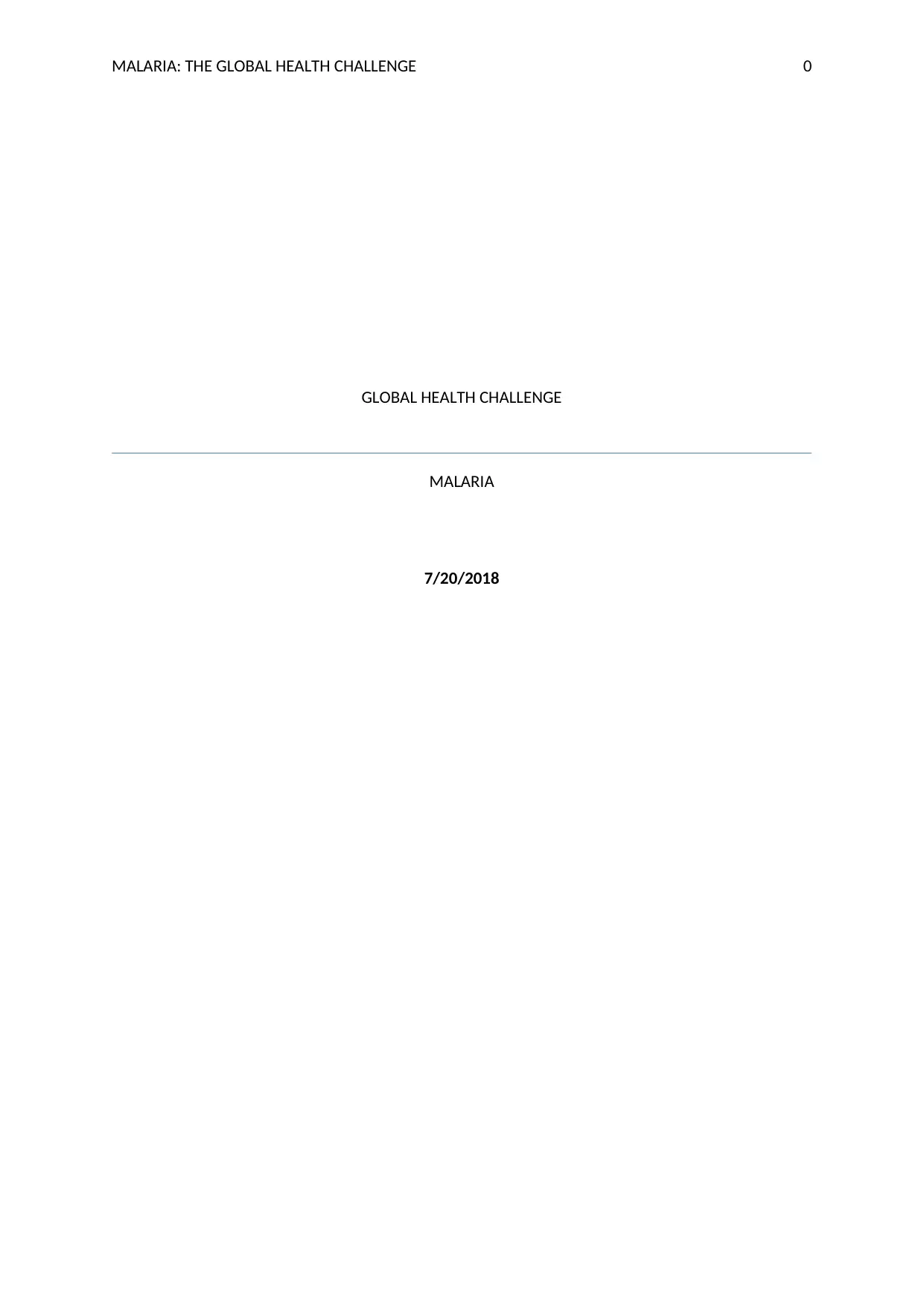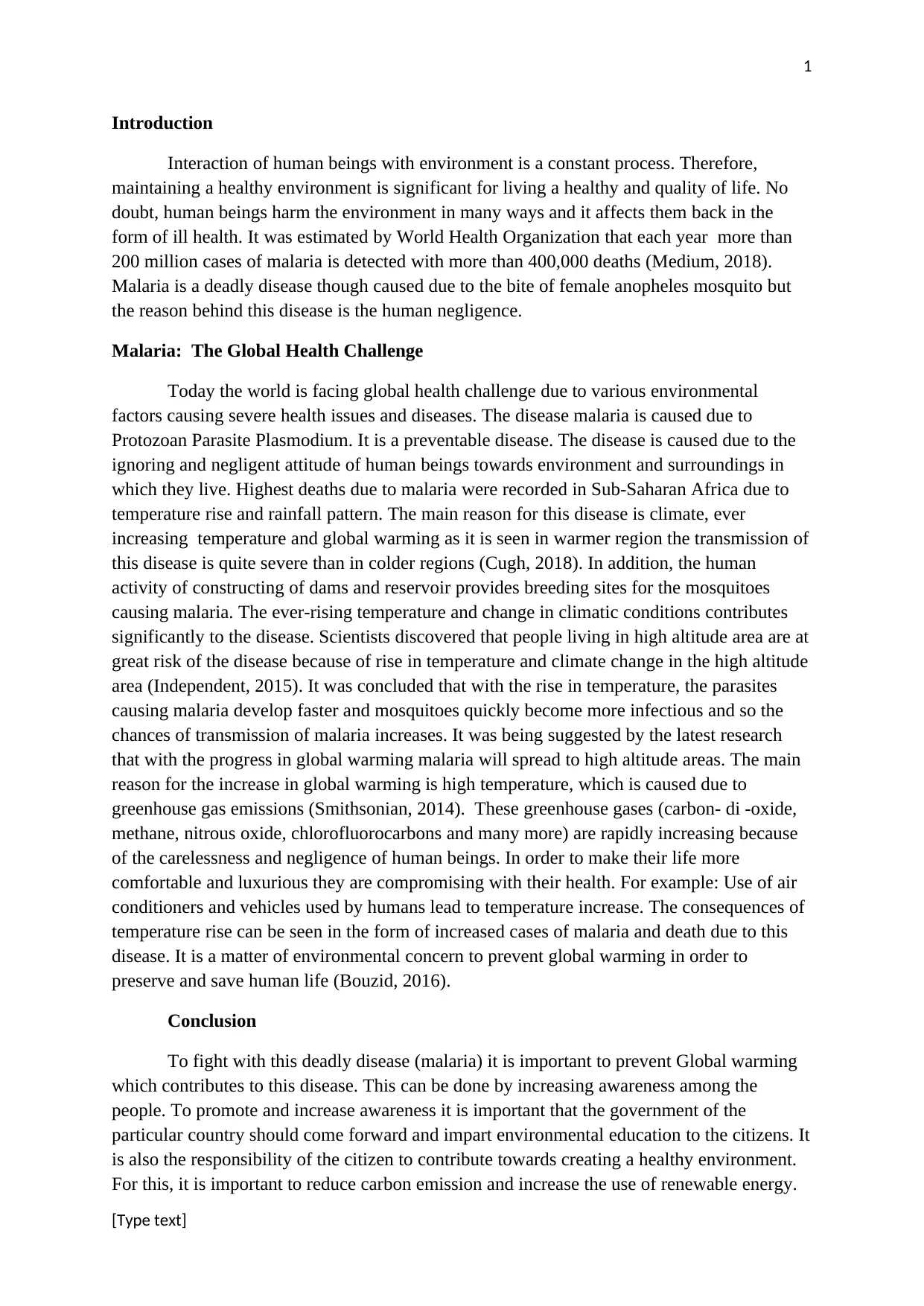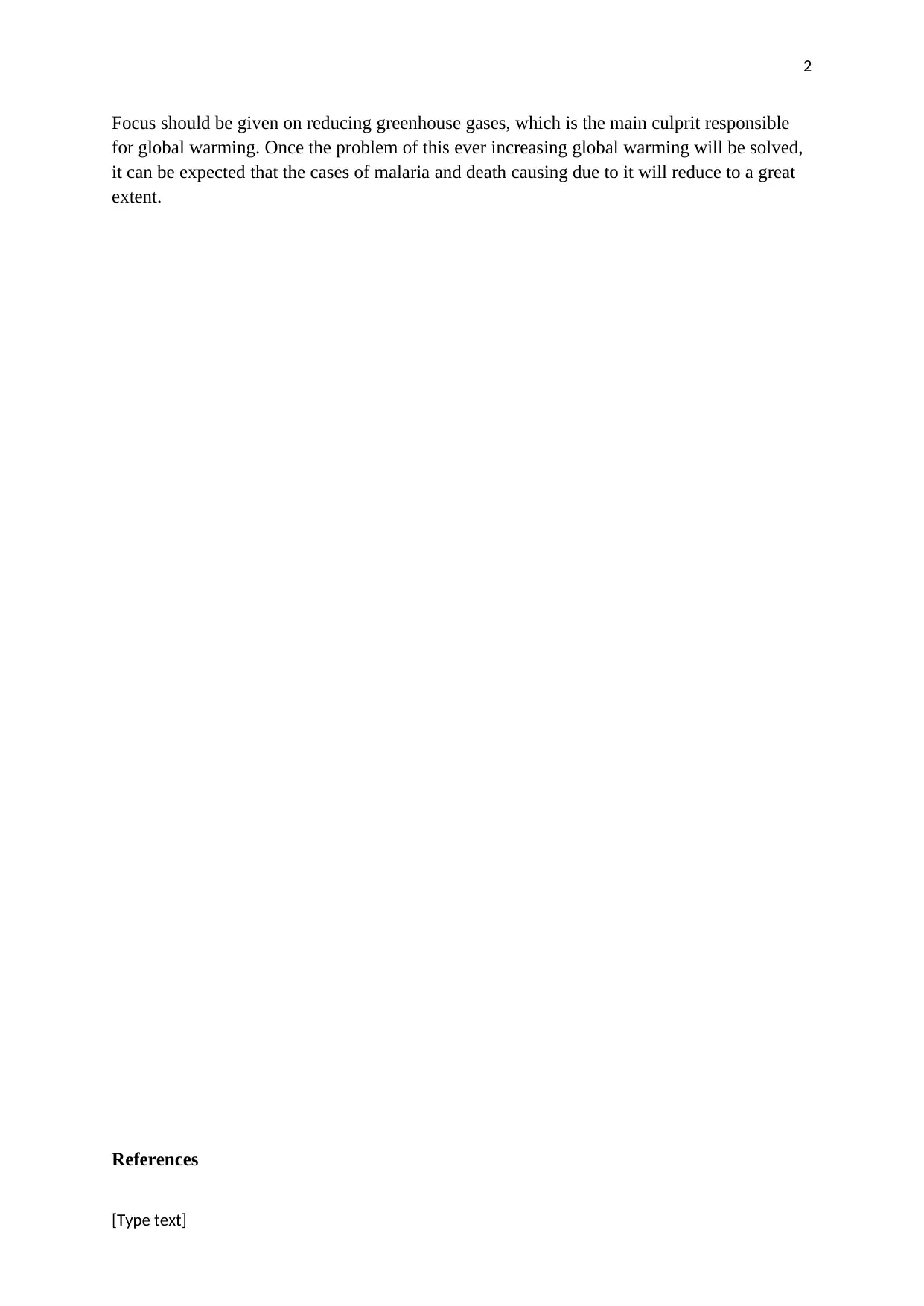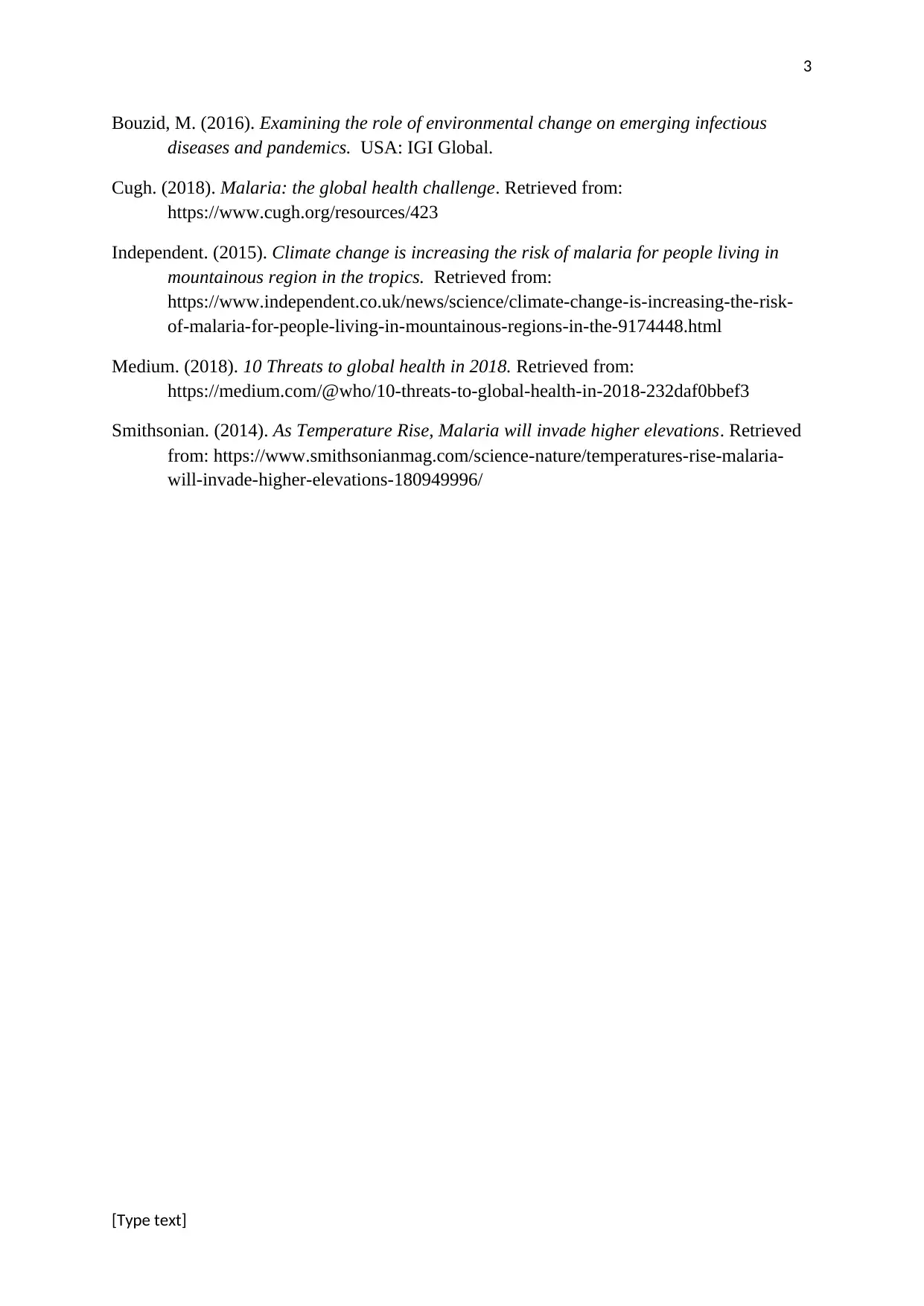Malaria and Climate Change: A Global Health Challenge Essay
VerifiedAdded on 2023/06/09
|4
|791
|258
Essay
AI Summary
This essay examines malaria as a significant global health challenge, emphasizing the crucial role of environmental determinants, particularly climate change. The introduction highlights the interaction between humans and their environment, setting the stage for a discussion on malaria's global impact, with more than 200 million cases reported annually and over 400,000 deaths. The essay explores the Protozoan parasite Plasmodium as the cause of malaria, emphasizing it as a preventable disease linked to human negligence towards environmental health. It discusses how factors like rising temperatures, global warming, and human activities such as dam construction create breeding grounds for mosquitoes, thereby increasing the risk of malaria transmission. The study also includes the impact of climate change in high-altitude areas and the role of greenhouse gas emissions in increasing global warming. The essay concludes by advocating for global warming prevention through increased awareness, environmental education, reduced carbon emissions, and the promotion of renewable energy sources to combat malaria.
1 out of 4











![[object Object]](/_next/static/media/star-bottom.7253800d.svg)